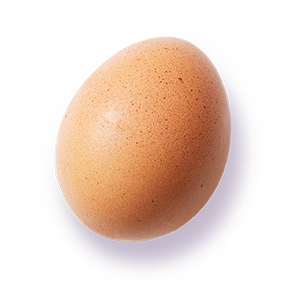
You can prevent food allergies for your baby
In recent decades, there has been a significant rise in the number of food allergies with 1 in 13 children suffering from a food allergy today. New research shows that feeding allergenic foods early and often can help significantly reduce the risk of developing food allergies in infants by up to 80%.

5 expert tips for parents on early allergen introduction:
-
Studies recommend starting as early as 4-6 months, to align with a critical immune window, giving your infant the best opportunity to develop a positive response to new foods.
-
Following pediatric guidelines, only introduce allergenic foods one at a time every few days, to determine how the baby is reacting to each new food.
-
The PETIT study and leading pediatricians recommend this dosing as it maximizes safety and efficacy.
-
Clinical trials exposed infants to allergenic foods 2-7 times a week for 3-6+ months. Families unable to maintain this frequent feeding did not see any benefit of food allergy prevention.
-
Many 4-6-month-olds are not ready to eat solid foods regularly and can be picky eaters. Despite these difficulties, continuing allergen introduction is crucial. For long-lasting immunity, research shows that “educating” an infant’s immune system over time is vital to creating tolerance.
Research & Studies
Thanks to findings from multiple landmark clinical studies, we now know that feeding allergens early and often can help prevent food allergies. Benefiting from this new research, guidelines from leading health organizations have been established to recommend feeding allergens for every baby.
“Introducing peanuts, eggs, cow’s milk, tree nuts...could reduce a child’s risk of developing a food allergy.”
~ USDA
“Introduce peanuts early to prevent allergy, especially if your baby is high risk.”
~ American Academy of Pediatrics
“Early introduction of peanut will result in the prevention of peanut allergy in a large number of infants.”
~ National Institutes of Health
Expert-driven Resources to Help Prevent Food Allergies
All of our education was developed in coordination with our team of leading physicians to serve as an evidence-based and essential resource for parents
FAQs
Answering the top 5 questions on preventing food allergies
-
Yes, early allergen introduction is safe. Feeding allergens to kids under 1 year of age is the safest time to start. Less than one percent of children under the age of 1 have any reaction at all, and when they do, it is mild. Learn more about the safety of early allergen introduction here.
-
Early allergen introduction is the process of gradually introducing common allergenic foods to your baby as early as four months of age. Recent groundbreaking clinical trials have showed that early allergen introduction can help prevent food allergies, which have been followed by guidelines from leading health organizations all recommending early allergen introduction. The American Academy of Pediatrics (AAP) published new guidelines in 2019 recommending "early introduction of peanuts" to prevent food allergies. Learn more about these new guidelines here.
-
All babies are at risk for developing food allergies. While babies with a food allergy family history or eczema are at higher risk, research conclusively shows that 1 in 13 children, regardless of risk factors, will develop a food allergy. In addition, eczema is the most significant risk factor for developing food allergies. Up to 67% of infants with severe eczema, and 25% of infants with mild eczema, will develop a food allergy. Learn more about your baby’s risk using our customized food allergy risk quiz.
-
A food allergic reaction can lead to symptoms like hives, swelling of lips/tongue, stomach upset, breathing problems, and other symptoms. In babies, hives and vomiting are the most common symptoms of a food allergic reaction. These symptoms usually occur within seconds to minutes and almost always within 2 hours. A food allergy should not be confused with a food intolerance, which is an adverse health effect caused by foods and usually involves the digestive system. Symptoms of different food intolerances can include: diarrhea, gas, bloating and/or stomach ache. Learn more about common symptoms of a food allergic reaction here.
-
Currently, doctors and scientists do not believe that eating allergens during pregnancy or while breastfeeding is enough to reduce the risk of food allergies, but this area is still being studied. The 2020 AAAAI (American Academy of Allergy, Asthma, and Immunology) Guidance says, "although exclusive breastfeeding is universally recommended for all mothers, there is no specific association between exclusive breastfeeding and the primary prevention of any specific food allergy.”
Although breastfeeding imparts countless benefits for mother and child, there is still inconclusive evidence proving that breastfeeding alone can reduce a baby’s risk of developing food allergies. Therefore, in addition to breastfeeding, early and sustained allergen introduction is recommended, regardless of the mother’s diet.



















